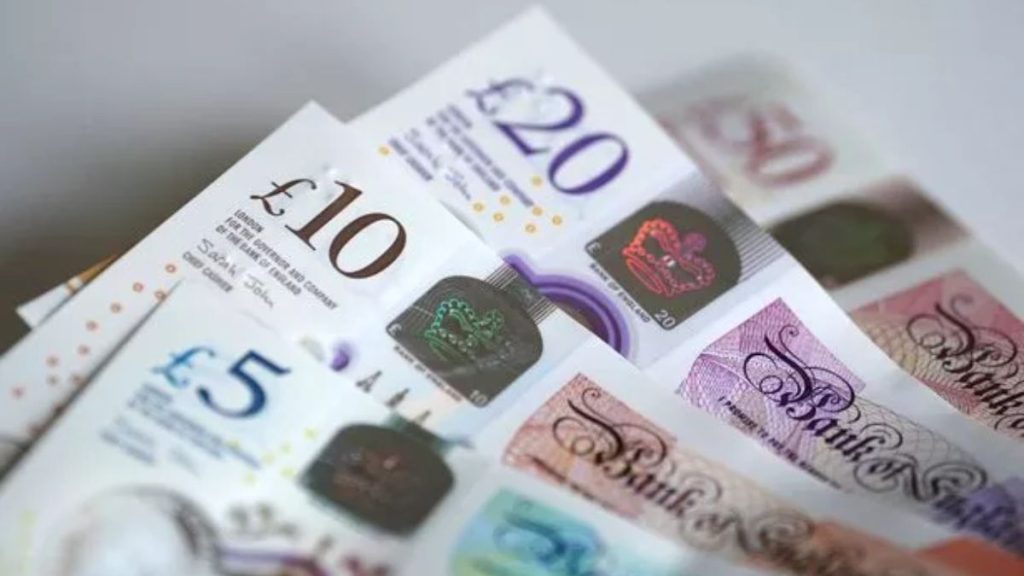Thousands of UK pensioners are on edge after HMRC confirmed automatic £300 bank deductions from certain accounts to recover unpaid taxes. The move, part of a wider effort to tackle tax discrepancies, has raised alarm among retirees—many of whom live on fixed incomes.
While the HMRC insists these deductions apply only to individuals with unpaid tax, older adults fear being unfairly targeted due to administrative errors or outdated records. Financial experts are urging pensioners to stay informed and monitor their accounts closely.
Why HMRC Is Making These Deductions

According to HMRC, the £300 automatic withdrawal is part of its streamlined process to recover unpaid or underpaid tax from previous financial years. Officials argue this method helps reduce the backlog of unresolved tax cases and eliminates the need for lengthy legal action.
In a statement, HMRC clarified that deductions are made only after thorough checks, ensuring that those affected truly owe the money. However, critics point out that system errors and outdated tax codes could result in wrongful deductions—especially for pensioners with complex income sources such as state pension, private pension, or small savings interest.
Who Could Be Affected by the £300 HMRC Deduction
Not every pensioner will see this deduction, but several groups are more likely to be affected. HMRC confirmed that the deductions apply mainly to those who:
- Have unpaid tax from previous years.
- Failed to report all sources of income (such as savings interest or rental earnings).
- Have discrepancies in pension, investment, or savings records.
Some retirees mistakenly assume they are exempt because their income is below the taxable threshold. However, HMRC’s new data-sharing systems automatically flag inconsistencies—meaning even small reporting errors can result in a deduction.
How to Check Your HMRC Account for Deductions
Financial experts recommend that pensioners regularly review their HMRC online account to detect issues before deductions occur. Here’s how:
- Log in to your HMRC Personal Tax Account.
- Review your tax statements and recent correspondence.
- Check for unpaid or underpaid balances listed in your records.
- Verify all income sources, including savings, dividends, or pensions.
- Contact HMRC immediately if you find inconsistencies or receive unexpected notifications.
For those uncomfortable with online systems, HMRC offers telephone and in-person support to help pensioners access their accounts and clarify issues.
What to Do If You’re Targeted by a £300 Deduction
If you discover that a £300 deduction is pending—or has already been made—you can take immediate steps to manage or challenge it.
1. Request a Review
If you believe the deduction is a mistake, you have the right to formally dispute it. HMRC must review your case and respond within a defined period.
2. Set Up a Payment Plan
If you do owe money, you can negotiate a repayment plan to spread the cost across several months. This option helps reduce financial strain for those on fixed pensions.
3. Seek Professional Help
Charities such as Citizens Advice and Age UK offer free support in understanding HMRC notices, filing appeals, and setting up payment arrangements.
The Financial Impact on Pensioners
For many older adults, a sudden £300 deduction can cause serious financial stress—especially when monthly expenses already stretch limited pensions. Costs for essentials like heating, groceries, and medication often leave little room for unexpected withdrawals.
Financial advisors recommend building a small emergency fund of £100–£200, which can provide a cushion for such unplanned events. Pensioners are also encouraged to track all correspondence from HMRC to avoid missing critical updates that could prevent deductions.
Common Mistakes That Trigger Deductions
HMRC’s new automated systems detect errors more efficiently, but many pensioners still face deductions due to avoidable mistakes such as:
- Failing to report small income sources (like savings interest or part-time work).
- Misunderstanding tax codes or assuming no tax is owed.
- Ignoring HMRC letters or digital notices due to confusion or delay.
A regular review of your tax records and bank statements can help catch errors early and prevent deductions from escalating into larger tax issues.
Understanding Tax Allowances for Pensioners in 2025
For the 2025–2026 tax year, the standard Personal Allowance—the amount of income you can earn before paying tax—is £15,597.
This means that pensioners receiving only the State Pension may not owe any income tax. However, additional income sources such as:
- Private pensions,
- Savings interest,
- Investment income, or
- Rental property earnings,
can push total earnings above the allowance, triggering a tax liability. Reporting all income accurately ensures that HMRC tax codes remain correct, preventing unexpected deductions.
Government Advice for Pensioners
HMRC and the Department for Work and Pensions (DWP) have issued guidance encouraging pensioners to:
- Keep personal and financial details updated, especially after life changes (like retirement or inheritance).
- Respond quickly to HMRC communications to avoid penalties.
- Seek assistance early if unsure about tax obligations.
Officials insist the £300 deduction process is not designed to penalize seniors, but to ensure fairness among taxpayers. However, they acknowledge that administrative errors may occur and encourage anyone affected to report problems immediately.
How to Protect Your Bank Account From Unwanted Deductions
Preventing deductions starts with vigilance and good record-keeping. Here’s what pensioners can do:
- Monitor bank statements regularly for unusual transactions.
- Check your tax account at least once per quarter.
- Set up direct communication with HMRC for real-time updates.
- Report suspected errors immediately to avoid escalation.
Many pensioners find it helpful to assign a trusted family member or financial advisor as an authorized representative to manage HMRC communications securely.
Case Studies: Real Pensioners Affected by the HMRC Deductions
To highlight the real-world effects, here are two examples of pensioners who experienced unexpected deductions:
Margaret, 78, from Manchester
“I was shocked when I saw £300 missing from my account. I called HMRC and found it was a clerical error related to an old pension I no longer received. It took three weeks to get the money back.”
John, 82, from Bristol
“I didn’t realize that rental income from my late wife’s property needed to be declared. The deduction hit right before my electricity bill was due. Thankfully, I was able to set up a repayment plan.”
These stories show how simple oversights can lead to big financial disruptions, underscoring the need for regular tax reviews.
Support Services for Pensioners Dealing With HMRC
Several free support organizations offer professional help for pensioners facing tax-related deductions:
- Citizens Advice: Provides free legal and financial guidance on tax and debt management.
- Age UK: Offers dedicated help for seniors, including assistance with HMRC disputes and budget planning.
- HMRC Helpline: Direct contact for clarification on deductions or updating personal details.
These resources can reduce stress and ensure pensioners get fair treatment when navigating complex tax issues.
Planning Ahead to Avoid Future Deductions
Preventing future deductions requires proactive financial management. Pensioners are encouraged to:
- Keep clear records of all income streams.
- File annual tax updates promptly, even if you believe no tax is owed.
- Double-check any HMRC updates or letters before discarding them.
- Maintain emergency savings to handle short-term financial gaps.
These measures help ensure your pension income remains stable and your HMRC records stay accurate.
Key Takeaways for UK Pensioners
- The £300 HMRC deduction targets those with unpaid or misreported tax from prior years.
- Deductions are automatic, but mistakes can happen, so vigilance is essential.
- Regularly checking HMRC accounts and bank statements can prevent financial surprises.
- Pensioners have access to support organizations like Age UK and Citizens Advice for help.
- Staying informed, proactive, and responsive is the best defense against unexpected tax deductions.
5 Frequently Asked Questions (FAQs)
Q1. Why is HMRC taking £300 from pensioners’ accounts?
HMRC is recovering unpaid or underpaid taxes from previous years through automatic deductions. The process targets individuals who owe outstanding tax, but some errors may occur.
Q2. Who is at risk of this £300 deduction?
Primarily those who have tax discrepancies, unreported income, or outdated records. Pensioners with multiple income sources are more likely to be affected.
Q3. How can I check if I’m affected?
You can review your HMRC Personal Tax Account online or contact the HMRC helpline to verify if any deductions are pending or have been issued.
Q4. What should I do if the deduction is incorrect?
Immediately request a review or appeal through HMRC. You can also seek support from Citizens Advice or Age UK to guide you through the process.
Q5. How can I prevent future deductions?
Ensure that all income sources are properly reported, check your tax code, and keep your HMRC records updated. Regular monitoring can help avoid surprises.

















